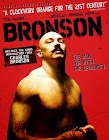Name: Eva Peron
Lived: 7 June 1919 – 26 July 1952
Film dates: 1926 to 1952 (death), mostly 1936 to 1952
Film made in 1996
"Evita" is a film that overwhelms me every time I watch it. It does everything
right: the music, the emotions, the grand events. Was this the last film to be
made with a cast of thousands? 40,000 extras may not be a record, but it's a
lot. Modern films use CGI when large crowds are needed. It saves money, but it
doesn't look as realistic. "Evita" begins with a large scene, and the effect
is breathtaking.
The film is a true rags to riches story. Eva Duarte grew up in a poor family,
but after moving to Buenos Aires in 1934 she rapidly climbed the ladder of
success. She worked first as a model, then a radio host, then a film star,
before she finally met Juan Person, the future President of Argentina. Rather
than being a passive first lady, hiding behind her husband, she campaigned for
workers' rights and women's rights. This made her popular with the people, or
at least the lower classes. The upper classes in Argentina resented her for
being an actress, which was an unfavourable career at the time.
The leading male character isn't Juan Peron, it's an unnamed man played by
Antonio Banderas. The credits list him as Ché, suggesting that he represents
the Argentinian rebel Ché Guevara. When "Evita" was performed on stage, Ché
wore army fatigues, further suggesting a connection with Ché Guevara, but Alan
Parker chose not to do this; in my opinion correctly. He appears in each scene
in different clothing, fitting in with his position. Effectively, he's a
different person each time he appears. He's a critical observer among the
people. When everyone else is praising Evita, as Eva Peron was known, he
points out her failings. He's the voice of reason.
The film is remarkably accurate, considering that it's only a musical.
It doesn't tell the complete history of Juan and Eva Peron, but what it does
tell is correct. A few years ago I checked for myself. Many characters are
shown briefly, less than 30 seconds of screen time each, without being named.
The film's credits name them, and you can look them up on Wikipedia.
As an incomplete history, the film isn't the best place to learn about Eva Peron.
There are books that will give you many more details. "Evita" the film is
meant to entertain, and it's a majestic success.
Success Rate: + 0.6
.jpg) |
Order from Amazon.com |
| Order from Amazon.co.uk | |
| Order from Amazon.de |






.jpg)














































